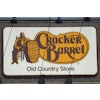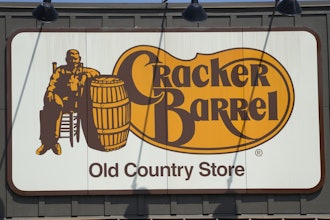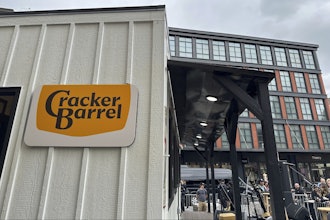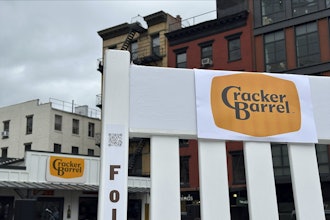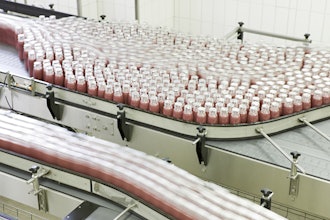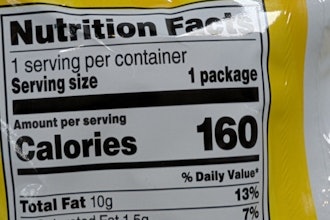
Despite the ongoing COVID-19 pandemic, the number of putative class actions filed against food and beverage manufacturers and retailers has increased and the trend shows no sign of abating. Suits targeting food and beverage companies continue to be filed across the country.
The Northern District of California remains known as the country’s “food court” as it continues to field a large percentage of food and beverage class actions, but many putative class-action complaints were also filed in the Southern and Central Districts of California and federal courts in New York this year. In addition, courts in Florida, Illinois and Missouri have seen a sizeable number of cases challenging the use or absence of specific ingredients to achieve advertised flavors as well as cases concerning whether a product’s sugar content undermines a product’s claim that it is healthy. As we look ahead to 2022, courts can expect to see more of the same as well as an increase in putative classes challenging sustainability claims as well as source of origin representations — particularly for any labels suggesting products are “Made in the U.S.A.” given the FTC’s recent enactment of a formal rule adopting its longstanding policy.
Trends in Recently Filed Class-Actions
The following trends in class actions filed against food and beverage companies show no sign of slowing down:
- Claims based on the presence or absence of ingredients (e.g., presence of non-butter ingredients in an “All Butter” cake);1
- Claims challenging source of origin representations (e.g. the source of Himalayan salt);2
- Claims asserting that the food is impliedly advertised as healthy despite containing an allegedly unhealthy ingredient (e.g. too much sugar);
- Claims alleging that products contain fewer than the advertised number of servings (e.g. candies in allegedly underfilled boxes);3 and
- Claims focused on representations that products are environmentally friendly or ethically produced or sourced (e.g. labeling a sunscreen bottle as “reef-friendly” where it allegedly contains toxic chemicals).4
New Direction for “Flavor” Cases?
Hundreds of suits challenging the absence of specific ingredients that add flavor to products have been filed in recent years. In several recent decisions, courts appear to be signaling a growing aversion to these claims, but plaintiffs’ lawyers continue to file flavor cases. Typically, these suits allege that the information communicated on food and beverage packaging is false and misleading because the products do not in fact contain an advertised ingredient or because the product is flavored using ingredients that consumers would not “expect” to be in the product.
More than 100 such lawsuits were filed in 2021 addressing a variety of flavors. Coca-Cola has been sued for allegedly misleading consumers by asserting that its piña colada-flavored Fanta drinks are “100% naturally flavored” despite the drink’s use of some artificial flavoring.5 Another putative class sued Anheuser-Busch because the “Made with Agave” statement on its Bud Light hard seltzer drinks allegedly misleads consumers into thinking the drinks are flavored using agave spirits when they merely contain agave syrup.6 In addition, another putative class recently sued Trader Joe’s, alleging that the strawberry in one of its strawberry pastry products is actually mostly made from apples rather than strawberries.7
Many of these suits were resolved on motions to dismiss because number of courts had no problem concluding that a reasonable consumer would not be misled by the product labeling at issue. For example, in Boswell v. Bimbo Bakeries USA, Inc., a New York district court recently dismissed a putative class action because it found that the product label “All Butter Loaf Cake” would not mislead a reasonable consumer into concluding that the entire cake is solely made up of butter. Importantly, the court noted “context is crucial” when assessing whether a product label or advertisement would actually mislead a reasonable consumer. Similarly, in Kamara v. Pepperidge Farm, Inc.8, a district court dismissed a putative class action because it found that a cracker advertised as “Golden Butter” would not lead a reasonable consumer to the false assumption that no vegetable oils or other non-butter products might be used in making the crackers.
If a case survives a motion to dismiss, a class settlement may be costly. For example, Blue Diamond agreed to pay $2.6 million to resolve claims that its vanilla-flavored almond milk and yogurt products, among others, were mislabeled because the labels allegedly led consumers to believe the flavor was derived from real vanilla.9
To reduce the risk of being sued for false or misleading advertising, food and beverage manufacturers may want to evaluate whether the context of advertisements and statements on their product packaging provide sufficient information that a reasonable consumer would not make incorrect conclusions as to what ingredients are included in — or have been omitted from — a given product. If product packaging includes the name or image of a food or spice, companies should consider whether the text or image merely suggests the product’s flavor or whether it suggests the product contains such ingredients. For instance, most courts will allow a product to identify itself as “vanilla” on its packaging provided no additional text or images suggest that the product’s vanilla flavor is derived from real vanilla bean. This is in recognition that most consumers understand that vanilla is a differentiating flavor commonly used in products and not necessarily a representation that a product contains real vanilla.10
A Sugar Rush in the Courts?
Plaintiffs’ lawyers have brought a series of cases alleging that food labels mislead consumers to believe that a product is healthy and contend that the presence of sugar renders them unhealthy. In the past year, there have been significant settlements reached in cases where the allegation is that the labeling of a product that contains sugar, or added sugar, as healthy is false. Kellogg settled a class-action suit claiming the company falsely advertises its cereals, which contain sugar, as healthy for $13 million.11 Similarly, Post Foods finalized a $15 million settlement in which it agreed to cease depicting certain products as “healthy” or “wholesome” or “nutritious” if more than 10% of a product’s calories derive from added sugar.12 Food and beverage companies have also had some success in defeating these claims. Recently, Whole Foods defeated a putative class claiming the company misleads consumers into thinking its oatmeal product does not contain added sugar by making representations such as “low fat” and “organic” on the product packaging.13 In granting Whole Foods’ Motion to Dismiss, the court found noted that a reasonable consumer would not be misled given the packaging makes no “sugar-free” representations and even includes the product’s sugar content under the nutrition label.
Made in America — Virtually an All-or-Nothing Situation
As noted above, class actions have been filed relating to statements of origin on a product label. The Federal Trade Commission has provided guidance as to the basis to make unqualified statements of origin and of how to make qualified statements of origin where the product contains numerous ingredients. The ability to demonstrate compliance with FTC guidelines is often useful in defending a claim based on an allegedly false or misleading statement of origin.
In particular, to ensure compliance with FTC guidance, representations that a product is “Made in America” or “Made in the USA” should be substantiated. A formal rule adopting FTC’s longstanding enforcement policy was adopted in August 2021, confirming that “all or virtually all” of a product must be made in the United States and contain “no — or negligible — foreign content” to support a “Made in the USA” label.14 By codifying this guidance into a formal rule, the FTC believes that it can increase deterrence of “Made in the USA” fraud and seek restitution for victims. In connection with the formal rule, the FTC announced that the USDA will complement the FTC’s efforts with its own initiative on labeling for products such as beef, and other agricultural products regulated by the Food Safety and Inspection Service.
Specific statutes and regulations can also apply to food and beverage companies and apply to impose additional requirements as to origin disclosures. For instance, on October 4, 2021, California enacted AB 535, a new law requiring olive oil products whose labels advertise California as the source of origin to disclose “the minimum percentage of olive oil in the container derived from olives grown in California” on their labels in the same font and size as the word “California.”
How Should a Food and Beverage Company Be Prepared to Defend Claims?
Claims and theories pursued by lawyers on behalf of putative classes continue to evolve. As the landscape changes, food and beverage companies will be best able to defend claims by ensuring that label statements and marketing claims are supported. Keeping records relating to the factual basis for label statements will ensure that claims are substantiated and to explain the basis for the substantiation. In addition, maintaining records showing changes in labels and other advertising can also prove helpful.
A robust factual response to a demand letter, often a precursor to a class action suit in states where a pre-suit demand is required, is the first line of defense. Demonstrating the factual basis and accuracy of a label statement may dissuade counsel from filing suit. If not, a motion to dismiss is the next line of defense. Demonstrating that a product is labeled in conformity with FDA guidance can also be helpful. For example, in Moore v. Trader Joe's Co., the Ninth Circuit noted that the district court’s order granting a motion to dismiss was based primarily on FDA”s Honey Guidelines.15 In that case, the court affirmed the district court’s granting of a motion to dismiss in a suit where the putative class alleged that Trader Joe’s “100% Manuka Honey” was falsely labeled because less than 100% of the honey comes from the Manuka flower. In affirming the dismissal, the court referred to FDA guidance recognizing that it is impossible for bees to produce honey solely from a single type of flower and allowing manufacturers to label honey with the name of its primary floral source. The court confirmed that a reasonable consumer would not be misled, first and foremost, given the foraging nature of bees as recognized in the FDA guidance. A reasonable consumer could not be left with the conclusion that "100% New Zealand Manuka Honey" represents a claim that the product consists solely of honey derived from Manuka. Rather, a reasonable consumer would be left only with the conclusion that "100% New Zealand Manuka Honey" means that it is 100% honey whose chief floral source is the Manuka plant.
While claims against food and beverage companies continue to advance new theories, courts are continuing to apply a reasonable consumer standard to assess the claims. Applying that standard, courts are often willing to dismiss suits where the subjective expectations of an individual plaintiff are atypical. For example, as seen above in Boswell, the district court rejected the plaintiff’s unreasonable expectation that the “All Butter Loaf Cake” would contain no ingredients besides butter. Likewise, claims can be subject to dismissal where the claims are based on statements that are all non-actionable “puffery.”16 If a reasonable consumer is unlikely to interpret vague statements about a product’s superiority as verifiable facts, courts will usually grant a motion to dismiss. However, where only some statements qualify as puffery and others could be considered factual, then a motion to dismissal is less likely to be granted.17
Robert Guite is a partner in Sheppard, Mullin, Richter & Hampton LLP’s Business Trial practice group and a member of the Food and Beverage team. Sascha Henry, also a partner in the firm’s Business Trial practice group, leads the firm’s Food and Beverage industry team. They have extensive experience defending food and beverage clients and retailers in class actions involving allegations of unfair competition and false advertising. Skyler Hicks is an associate in the firm’s Business Trial practice group. They can be reached at [email protected], [email protected], and [email protected] respectively.
1. Boswell v. Bimbo Bakeries USA, Inc., No. 20-CV-8923 (JMF), 2021 U.S. Dist. LEXIS 213763, at *1 (S.D.N.Y. Nov. 4, 2021)
2. Brown, et al. v. Morton Salt, Inc., N.D. Cal. Case No. 4:21-cv-06855.
3. Iglesia v. Tootsie Roll Indus., LLC, No. 20-18751, 2021 U.S. Dist. LEXIS 200269, at *1 (D.N.J. Oct. 18, 2021)
4. Anderberg v. The Hain Celestial Group, Inc., S.D. Cal. Case No. 3:21-cv-01794.
5. Hawkins v. The Coca-Cola Co., S.D.N.Y. Case No. 7:21-cv-08788.
6. Khaimova v. Anheuser-Busch, LLC, N.D. Ill. Case No. 1:21-cv-05268.
7. Quinn v. Trader Joe’s Company, N.D. Ill. Case No. 1:21-cv-05513.
8. Kamara v. Pepperidge Farm, Inc., No. 20-cv-9012 (PKC), 2021 U.S. Dist. LEXIS 216644, at *2 (S.D.N.Y. Nov. 9, 2021)
9. Biegel, et al. v. Blue Diamond Growers, S.D.N.Y. Case No. 7:20-cv-03032.
10. Cosgrove v. Blue Diamond Growers, S.D.N.Y. Case No. 1:19-cv-08993.
11. Hadley v. Kellogg Sales Co., No. 16-CV-04955-LHK, 2021 U.S. Dist. LEXIS 233346, at *1 (N.D. Cal. Nov. 23, 2021).
12. Krommenhock v. Post Foods Co., No. 16-cv-04958-WHO, 2021 U.S. Dist. LEXIS 131782 (N.D. Cal. June 25, 2021); Krommenhock v. Post Foods, LLC, No. 16-cv-04958-WHO, 2018 U.S. Dist. LEXIS 42938, at *3 (N.D. Cal. Mar. 15, 2018).
13. Warren v. Whole Foods Mkt. Grp., Inc., No. 19-CV-6448 (RPK) (LB), 2021 U.S. Dist. LEXIS 231930 (E.D.N.Y. Dec. 3, 2021)
14. 16 CFR 323, Made in USA Labeling Rule.
15. Moore v. Trader Joe's Co., 4 F.4th 874 (9th Cir. 2021).
16. Fitzpatrick v. Vital Pharm., Inc., No. 20-61121-CIV, 2021 U.S. Dist. LEXIS 106402, at *21-22 (S.D. Fla. June 4, 2021).
17. Id. at 22.




